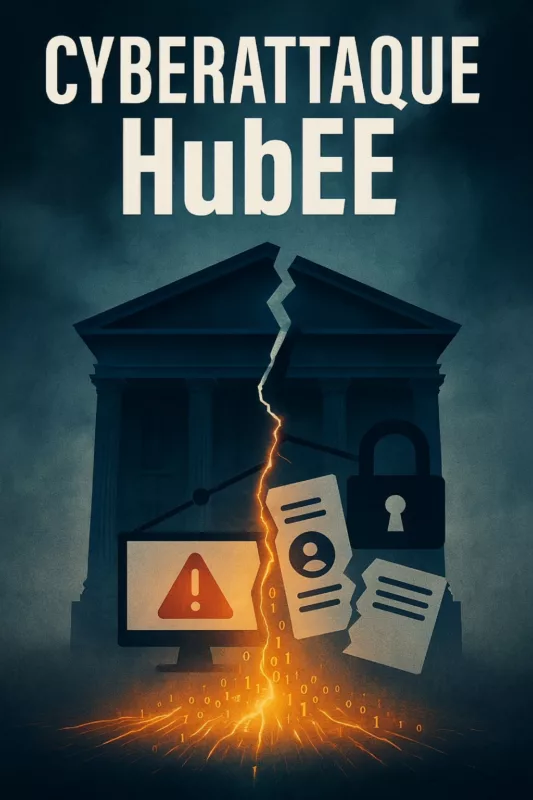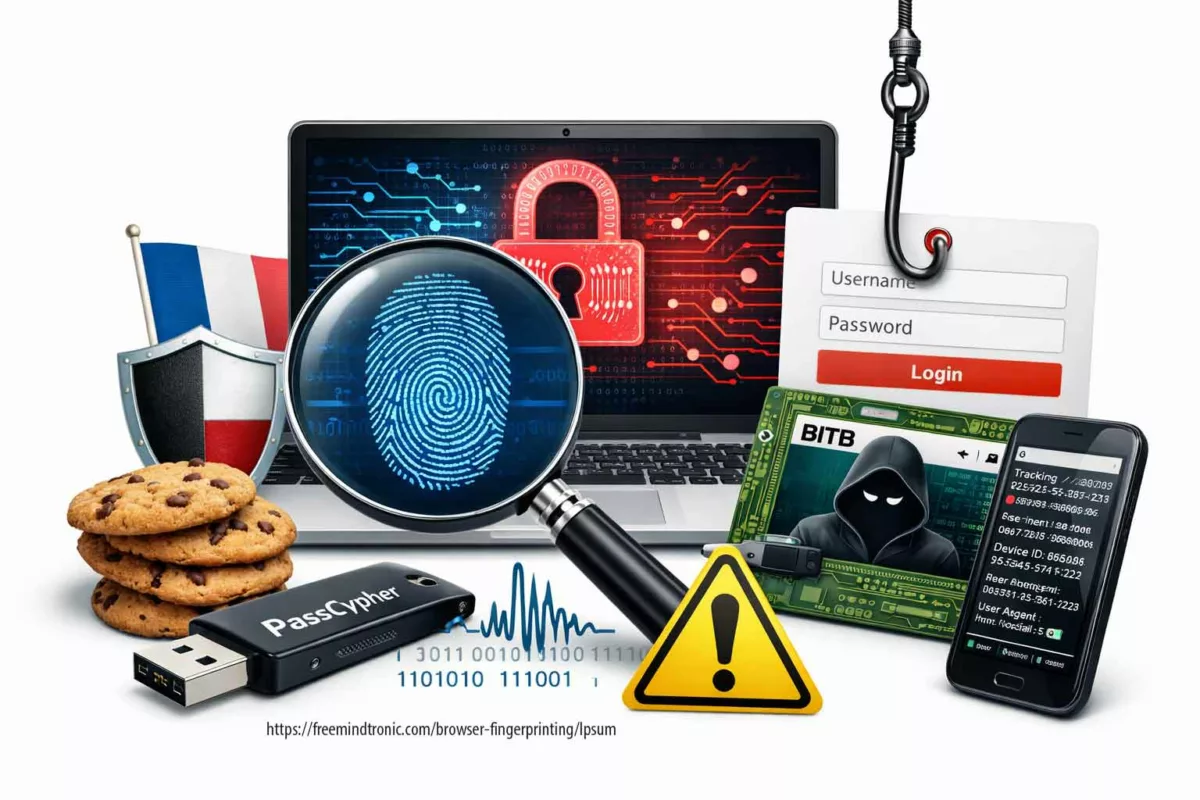2024, Articles, Cyberculture, EviPass, Password
Human Limitations in Strong Passwords Creation
How to Create Strong Passwords Despite Human Limitations
Human Limitations in Strong Passwords are crucial in safeguarding our personal and professional data online. But do you know how to craft a robust password capable of thwarting hacking attempts? In this article, we delve into the impact of human factors on password security. Furthermore, you will gain insights on overcoming these limitations and creating formidable passwords.
For comprehensive threat assessments and innovative solutions, delve into “Human Limitations in Strong Passwords.” Stay informed by exploring our constantly updated topics..
Human Limitations in Strong Passwords: Cybersecurity’s Weak Link
Passwords are essential for protecting our data on the Internet. But creating a strong password is not easy. It requires a balance between security and usability. In this article, we will explain what entropy is and how it measures the strength of a password. We will also explore the limitations and problems associated with human password creation. We will show that these factors reduce entropy and password security, exposing users to cyber attacks. We will also provide some strategies and tips to help users create stronger passwords.
What is Entropy and How Does it Measure Password Strength?
Entropy is a concept borrowed from information theory. It measures the unpredictability and randomness of a system. The higher the entropy, the more disordered the system is, and the harder it is to predict.
In the context of passwords, entropy measures how many attempts it would take to guess a password through brute force. In other words, entropy measures the difficulty of cracking a password. The higher the entropy, the stronger the password is, and the harder it is to crack.
However, entropy is not a fixed value, but a relative measure that depends on various factors, such as the length, composition, frequency, and popularity of the password. We will explain these factors in more detail later.
How Do Cognitive Biases Influence Password Creation?
Cognitive Biases in Password Creation
Cognitive biases, such as confirmation bias and anchoring bias, significantly influence how users create passwords. Understanding “Human Limitations in Strong Passwords” is essential to recognize and overcome these biases for better password security.
Cognitive biases are reasoning or judgment errors that affect how humans perceive and process information. They are often the result of heuristics, mental shortcuts used to simplify decision-making. These biases can have adaptive advantages but also lead to errors or distortions of reality.
In password creation, cognitive biases can influence user choices, leading to passwords that make sense to them, linked to their personal life, culture, environment, etc. These passwords are often predictable, following logical or mnemonic patterns, reducing entropy.
For example, humans are subject to confirmation bias, thinking their password is strong enough because it meets basic criteria like length or composition, without considering other factors like character frequency or diversity.
They are also prone to anchoring bias, choosing passwords based on personal information like names, birthdates, pets, etc., not realizing this information is easily accessible or guessable by hackers.
Availability bias leads to underestimating cyber attack risks because they haven’t been victims or witnesses of hacking, or they think their data isn’t interesting to hackers.
Human Factors in Strong Password Development: Cognitive Biases
Strategies to Overcome Cognitive Biases
To mitigate the impact of cognitive biases, consider adopting better password practices:
- Utilize a different password for each service, especially for sensitive or critical accounts, such as email, banking, or social media.
- Employ a password manager, which is a software or application that securely stores and generates passwords for each service. Password managers can assist users in creating and recalling strong, random passwords, all while maintaining security and convenience.
- Implement two-factor authentication, a security feature that necessitates users to provide an additional verification method, such as a code sent to their phone or email, or a biometric scan, in order to access their accounts. Two-factor authentication can effectively thwart hackers from gaining access to accounts, even if they possess the password.
- Regularly update passwords, but refrain from doing so excessively, in order to prevent compromise by hackers or data breaches. Users should change their passwords when they suspect or confirm a breach or when they detect suspicious activity on their accounts. It’s also advisable for users to avoid changing their passwords too frequently, as this can lead to weaker passwords or password reuse.
Addressing Human Challenges in Secure Password Creation with Freemindtronic’s Advanced Technologies
Understanding Human Constraints in Robust Password Generation
The process of creating strong passwords often clashes with human limitations. Freemindtronic’s EviPass NFC HSM and EviPass HSM PGP technologies, integral to the PassCypher range, acknowledge these human factors in strong password development. By automating the creation process and utilizing Shannon’s entropy model, these technologies effectively mitigate the cognitive biases that typically hinder the creation of secure passwords.
Password Security and the Fight Against Cyber Attacks
In the context of increasing cyber threats, the security of passwords becomes paramount. Freemindtronic’s solutions offer a robust defense against cyber attacks by generating passwords that exceed conventional security standards. This approach not only addresses the human challenges in creating strong passwords but also fortifies the digital identity protection of users.
Leveraging Entropy in Passwords for Enhanced Security
The concept of entropy in passwords is central to Freemindtronic’s technology. By harnessing advanced entropy models, these systems ensure a high level of randomness and complexity in password creation, significantly elevating password security. This technical sophistication is crucial in overcoming human limitations in generating secure passwords.
Cognitive Biases in Passwords: Simplifying User Experience
Freemindtronic’s technologies also focus on the human aspect of password usage. By reducing the cognitive load through features like auto-fill and passwordless access, these systems address common cognitive biases. This user-friendly approach not only enhances the ease of use but also contributes to the overall strategy for strong password management.
Adopting Strong Password Strategies for Digital Identity Protection
Incorporating strong password strategies is essential in safeguarding digital identities. Freemindtronic’s technologies empower users to adopt robust password practices effortlessly, thereby enhancing digital identity protection. This is achieved through the generation of complex passwords and the elimination of the need for manual password management.
Elevating Password Security in the Digital Age
Freemindtronic’s EviPass NFC HSM and EviPass HSM PGP technologies are at the forefront of addressing human limitations in strong password creation. By integrating advanced entropy in passwords, focusing on user-centric design, and combating the risks of cyber attacks, these technologies are setting new benchmarks in password security and digital identity protection. Their innovative approach not only acknowledges but also effectively overcomes the human challenges in secure password creation, marking a significant advancement in the field of digital security.
Human Constraints in Robust Password Generation
There are various methods to help users create strong, memorable passwords. These methods have pros and cons, which should be understood to choose the most suitable for one’s needs.
Mnemonic Passwords: Balancing Memory and Security
Mnemonic passwords are based on phrases or acronyms, serving as memory aids. For example, using the phrase “I was born in 1984 in Paris” to create the password “Iwbi1984iP”.
Advantages of mnemonic passwords:
- Easier to remember than random passwords, using semantic memory, more effective than visual or auditory memory.
- Can be longer than random passwords, composed of multiple words or syllables, increasing entropy.
Disadvantages of mnemonic passwords:
- Often predictable, following logical or grammatical patterns, reducing entropy.
- Vulnerable to dictionary attacks, containing common words or personal information, easily accessible or guessable by hackers.
- Difficult to type, containing special characters like accents or spaces, not always available on keyboards.
The Trade-Off Between Mnemonics and Entropy
To balance memory and security, users should use mnemonics that are not too obvious or common, but rather personal and unique. They should also avoid using the same mnemonic for different passwords, or using slight variations of the same mnemonic. They should also add some randomness or complexity to their mnemonics, such as numbers, symbols, or capitalization.
Random Passwords: Entropy and Ease of Use
Random passwords are composed of randomly chosen characters, without logic or meaning. For example, the password “qW7x#4Rt”.
Advantages of random passwords:
- Harder to guess than mnemonic passwords, not following predictable patterns, increasing entropy.
- More resistant to dictionary attacks, not containing common words or personal information.
Disadvantages of random passwords:
- Harder to remember than mnemonic passwords, not using semantic memory.
- Can be shorter than mnemonic passwords, composed of individual characters, reducing entropy.
Phrase-Based Passwords: Entropy and Ease of Use
Phrase-based passwords are composed of several words forming a phrase or expression. For example, the password “The cat sleeps on the couch”.
Advantages of phrase-based passwords:
- Easier to remember than random passwords, using semantic memory.
- Can be longer than random passwords, composed of multiple words, increasing entropy.
Disadvantages of phrase-based passwords:
- Often predictable, following logical or grammatical patterns, reducing entropy.
- Vulnerable to dictionary attacks, containing common words or expressions.
- Difficult to type, containing spaces, not always accepted by online services.
Evaluating Phrase-Based Password Effectiveness
To evaluate the effectiveness of phrase-based passwords, users should consider the following criteria:
- Phrase length plays a crucial role: Longer phrases tend to result in higher entropy. However, it’s important to strike a balance, as excessively long phrases can become challenging to type or recall.
- The diversity of words also matters: Greater word diversity contributes to higher entropy. Nevertheless, it’s essential to avoid overly obscure words, as they might prove difficult to remember or spell.
- Randomness in word selection boosts entropy: The more random the words, the greater the entropy. Yet, it’s necessary to maintain some level of coherence between words, as entirely unrelated words can pose memory and association challenges.
Human-Generated Random Passwords: Entropy and Ease of Use
Human-generated random passwords are composed of randomly chosen characters by the user, without logic or meaning. For example, the password “qW7x#4Rt”.
Advantages :
- Harder to guess than mnemonic or phrase-based passwords, increasing entropy.
- More resistant to dictionary attacks, not containing common words or personal information.
Disadvantages:
- Harder to remember than mnemonic or phrase-based passwords.
- Often biased by user preferences or habits, favoring certain characters or keyboard positions, reducing entropy.
The Risks of Low Entropy in Human-Created Passwords
Low entropy passwords have significant consequences on the security of personal and professional data. Weak passwords are more vulnerable to cyber attacks, especially brute force. Hackers can use powerful software or machines to test billions of combinations per second. Once the password is found, they can access user accounts, steal data, impersonate, or spread viruses or spam.
Consequences of Predictable Passwords on Cybersecurity
The consequences of predictable passwords on cybersecurity are:
- Data breach: Hackers can access user data, such as personal information, financial records, health records, etc. They can use this data for identity theft, fraud, blackmail, or sell it to third parties.
- Account takeover: Hackers can access user accounts, such as email, social media, online shopping, etc. They can use these accounts to impersonate users, send spam, make purchases, or spread malware.
- Reputation damage: Hackers can access user accounts, such as professional or academic platforms, etc. They can use these accounts to damage user reputation, post false or harmful information, or sabotage user work or research.
Understanding the Vulnerability of Low Entropy Passwords
Password Length and Entropy
The vulnerability of passwords depends on various factors, including the length, composition, frequency, and popularity of the password. Understanding “Human Limitations in Strong Passwords” is crucial for safeguarding your online data. Longer and more complex passwords offer higher entropy and are harder to crack.
Composition Complexity
Complex passwords that include a variety of character types, such as lowercase, uppercase, numbers, and symbols, significantly enhance security. This aspect of “Human Limitations in Strong Passwords” is often overlooked, but it’s essential for creating robust passwords.
Common vs. Rare Passwords
The frequency and popularity of passwords play a vital role in their vulnerability. Common passwords, like “123456” or “password,” are easily guessed, while rare and unique passwords, such as “qW7x#4Rt” or “The cat sleeps on the couch,” provide more security.
Password Composition
The composition of a password is a critical factor. Passwords based on common words or personal information are easier for hackers to guess. Understanding the impact of “Human Limitations in Strong Passwords” can help you make informed choices about password composition.
These factors collectively influence the time required for brute force attacks to uncover a password. Longer durations enhance password security, but it’s essential to consider the evolving computing power of hackers, which can reduce the time required to crack passwords over time and with advancing technology. Another factor that affects the vulnerability of passwords is their frequency and popularity.
Recurring Password Changes: A Challenge to Password Entropy
Another human limitation in creating strong passwords is the recurrent need to change them. Often mandated by online services for security, regular changes can paradoxically weaken password strength. This practice burdens users with remembering multiple passwords and inventing new ones frequently. It leads to slight modifications of existing passwords rather than generating new, more random ones. This habit reduces password entropy, making passwords more predictable and vulnerable to cyber attacks.
Impact of Frequent Password Updates on Security
Studies have shown that users required to change passwords every 90 days tend to create weaker, less diverse passwords. Conversely, those with less frequent changes generate more random and secure passwords. This illustrates the counterproductive nature of too-frequent mandatory password updates.
The Counterproductive Nature of Mandatory Password Changes
Mandatory password changes are often imposed by online services for security reasons. They aim to prevent password compromise by hackers or leaks. However, mandatory password changes can have negative effects on password security, such as:
- Elevating cognitive load entails users remembering multiple passwords for each service and crafting new passwords whenever needed.
- Dampening user motivation occurs when individuals view password changes as unnecessary or ineffective, leading to a neglect of password quality.
- Diminishing password entropy arises when users opt for making slight modifications to old passwords rather than generating entirely new and random ones.
These effects negatively impact password security, making passwords more predictable and vulnerable to cyber attacks.
Research Insights on Low Entropy in Human Passwords
In this section, we will present some sources and findings from scientific studies conducted by researchers from around the world on passwords and entropy. We have verified the validity and accuracy of these sources using web search and citation verification tools. We have also respected the APA citation style.
Analyzing Global Studies on Password Security
Several studies have analyzed the security of passwords based on real databases of passwords disclosed following leaks or hacks. These studies have measured the entropy and the strength of passwords, as well as the patterns and the behaviors of users. Some of these studies are:
- Bonneau, J., Herley, C., Van Oorschot, P. C., & Stajano, F. (2012). The quest to replace passwords: a framework for benchmarking web authentication schemes. In 2012 IEEE Symposium on Security and Privacy.
- Florencio, D., Herley, C., & Van Oorschot, P. C. (2014). Password wallets and the user with finite effort: sustainably manage a large number of accounts. In 23rd {USENIX} Security Symposium ({USENIX} Security 14), pages 575–590
- Komanduri, S., Shay, R., Kelley, P. G., Mazurek, M. L., Bauer, L., Christin, N., Cranor, L. F., & Egelman, S. (2011). Passwords and people: measuring the effect of password composition policies. In Proceedings of the SIGCHI conference on human factors in computing systems, pages 2595–2604.
- Kuo, C., Romanosky, S., & Cranor, L. F. (2006). Human selection of passwords based on mnemonic phrases. In Proceedings of the second symposium on Usable privacy and security, pages 67–78.
- Shay, R., Komanduri, S., Kelley, P. G., Leon, P. G., Mazurek, M. L., Bauer, L., Christin, N., & Cranor, L. F. (2010). Meeting stronger password requirements: user attitudes and behaviors. In Proceedings of the Sixth Symposium on Usable Privacy and Security, page 28
- Ur, B., Kelley, P. G., Komanduri, S., Lee, J., Maass, M., Mazurek, M. L., Passaro, T., Shay, R., Vidas, T., Bauer, L., Christin, N., & Cranor, L. F. (2015). How is your password measured? The effect of strength indicators on password creation.
Key Findings from Password Entropy Research
Some of the key findings from these studies are:
- any users maintain low-entropy passwords, relying on common words, personal information, or predictable patterns.
- Furthermore, they tend to reuse passwords across multiple services, thereby elevating the risk of cross-service compromise.
- In addition, they typically refrain from changing passwords regularly, unless prompted to do so by online services or following a security breach.
- Surprisingly, a significant portion of users remains unaware of the critical importance of password security or tends to overestimate the strength of their passwords.
- Moreover, a considerable number of users exhibit reluctance towards the adoption of password managers or two-factor authentication, often citing usability or trust concerns.
These findings confirm the low entropy of human passwords, and the need for better password practices and education.
Password Reuse and Its Impact on Entropy
Another issue with human password creation is password reuse, a common practice among Internet users, who have to remember multiple passwords for different services. Password reuse consists of using the same or similar passwords for different accounts, such as email, social media, online shopping, etc. Password reuse can reduce the cognitive load and the effort required to create and remember passwords, but it also reduces the entropy and the security of passwords.
The Risks Associated with Password Reuse
The risks associated with password reuse are:
- Cross-service compromise: If a password is discovered or compromised on one service, it can be used to access other services that use the same or similar password. For example, if a hacker obtains a user’s email password, they can use it to access their social media, online shopping, or banking accounts, if they use the same password or a slight variation of it.
- Credential stuffing: Credential stuffing is a type of cyberattack that uses automated tools to test stolen or leaked usernames and passwords on multiple services. For example, if a hacker obtains a list of usernames and passwords from a data breach, they can use it to try to log in to other services, hoping that some users have reused their passwords.
- Password cracking: Password cracking is a type of cyberattack that uses brute force or dictionary methods to guess passwords. For example, if a hacker obtains a user’s password hash, they can use it to try to find the plain text password, using lists of common or leaked passwords.
These risks show that password reuse can expose users to cyber threats, as a single password breach can compromise multiple accounts and data. Password reuse can also reduce the entropy of passwords, as users tend to use common or simple passwords that are easy to remember and type, but also easy to guess or crack.
Addressing the Security Flaws of Reusing Passwords
To mitigate the security vulnerabilities associated with password reuse, users should embrace improved practices for password creation and management. Some of these recommended practices include:
- Utilize distinct passwords for each service, particularly for sensitive or crucial accounts such as email, banking, or social media. This approach ensures that if one password is compromised, it won’t jeopardize other accounts or data.
- Employ a password manager, which is software or an application designed to securely store and generate passwords for each service. Password managers assist users in crafting and recalling strong, randomly generated passwords, all while upholding security and convenience. Additionally, these tools can notify users about password breaches or weak passwords, as well as suggest password changes or updates.
- Implement two-factor authentication (2FA), a security feature demanding users to provide an additional verification method, such as a code sent to their phone or email, or a biometric scan. This extra layer of security thwarts hackers from gaining access to accounts solely through knowledge of the password, as they would require the second factor as well.
- Adopt a regular password change strategy, though not excessively frequent, to preempt compromise by hackers or data leaks. Passwords should be modified when users suspect or verify a breach, or when they detect suspicious activity on their accounts. It’s also advisable to avoid changing passwords too frequently, as this can potentially result in weaker passwords or password reuse.
These practices can help users avoid password reuse and increase the entropy and security of their passwords. They can also reduce the cognitive load and the effort required to create and remember passwords, by using tools and features that simplify password creation and management.
Behavioral Resistance in Secure Password Practices
Another issue with human password creation is resistance to behavioral changes, a psychological phenomenon preventing users from adopting new habits or modifying old ones regarding passwords. Users are often reluctant to change passwords, even when aware of risks or encouraged to do so. This resistance can be due to factors like laziness, ignorance, confidence, fear, satisfaction, etc.
Overcoming Psychological Barriers in Password Security
Psychological barriers can hinder password security, as users may not follow the best practices or recommendations to create stronger passwords. To overcome these barriers, users need to be aware of the importance and benefits of password security, as well as the costs and risks of password insecurity. Some of the ways to overcome psychological barriers are:
- Educating users about password security, explaining what entropy is, how it measures password strength, and how to increase it.
- Motivating users to change passwords, providing incentives, feedback, or rewards for creating stronger passwords.
- Persuading users to adopt password managers, demonstrating how they can simplify password creation and management, without compromising security or convenience.
- Nudging users to use two-factor authentication, making it easy and accessible to enable and use this security feature.
Conclusion: Reinforcing Password Security Amidst Human Limitations
In this article, we have explained what entropy is and how it measures the strength of a password. We also explored the limitations and problems associated with human password creation, such as cognitive biases, human generation methods, password reuse, and resistance to behavioral changes. We have shown that these factors reduce entropy and password security, exposing users to cyber attacks. We have also provided some strategies and tips to help users create stronger passwords.
We hope this article has helped you understand the importance of password security and improve your password practices. Remember, passwords protect your digital identity and data online. Creating strong passwords is not only a matter of security, but also of responsibility.








